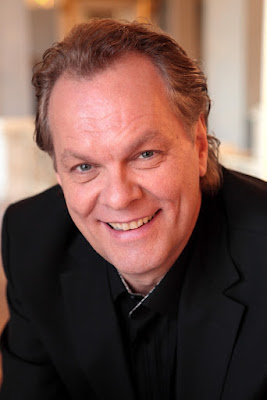RECORDING REVIEW | Wagner | Rundfunk-Sinfonieorchester Berlin/Volle & Fritzsch | "The sinew that resides in the lower registers of Volle’s klang gains a golden nobility in notes of higher planes"
Richard WAGNER (1813-1883)
Scenes and Arias from Die Meistersinger, Tannhäuser, Der fliegende Holländer,
Siegfried, Die Walküre & Das Rheingold
Michael Volle (baritone)
Rundfunk-Sinfonieorchester Berlin/Georg Fritzsch
rec. 2016, Großen Sendesaal des RBB, Berlin
ORFEO C904171A [65.48]
 |
| Michael Volle, (c) Wilfried Hösl |
The paucity of compilation recordings of Wagner arias betray the seemingly unending appeal of the German composer’s operatic creations. Understandably, for a composer whose most arresting passages tend to be contextualized, often being outbursts arising from slow-brewed psycho-emotional accumulations, a true Wagnerian aria is rarely self-contained nor is it understandable as an isolated slice from larger chunks.
Yet these concerns can be reconsidered when the arias derive from Wagner’s most complex and internally conflicted characters, namely Wagner’s bass baritones - interchangeable with high bass, and often murkily attributed as a ‘heroic baritone’ - that are sung by one of the living champions of these roles, Michael Volle.
There is plenty of beauty to be found in the combination. The velvet and stone of Volle’s vocal allure bring life to Wagner’s imaginative portrayals of various vicissitudes and epiphanies from his great operas. The sinew that resides in the lower registers of Volle’s klang gains a golden nobility in notes of higher planes. Lyrical ardour, too, is rarely overlooked, as can be heard especially in the Tannhäuser and Die Meistersinger von Nürnberg excerpts. If Volle’s Wotan lack the rugged heftiness of Hans Hotter and John Tomlinson, there is much sensitivity and warmth. Such versatility considered, it is difficult to escape from the thought that Volle is born to play these roles of psychological complexity, authority, yet ultimately very human vulnerability. His regular contribution to notable Wagner productions, including this year’s Hans Sachs at the Bayreuth Festival, is far from surprising.
And lest we forget - never judge a disc by its cover. If the image of Volle and Wagner imperiously standing against each other suggested that the highlight was always going to be about the singer and the music, Georg Fritzsch’s direction of the Rundfunk-Sinfonieorchester Berlin is hardly perfunctory. Admittedly, I have encountered orchestral contour of heightened oomph and electricity – I am specifically thinking of Levine’s studio recording of the Die Frist ist um with Bryn Terfel (DG 445866-2). Yet Fritzch’s non-theatrical and relaxedly-paced shaping of the orchestra achieves superb balance and empathy, with the timpani and brass sensibly aware of the sumptuous legato-driven strings. The controlled brass unison at the concluding moments of Leb' wohl, du kühnes, herrliches Kind! is noble in intent and effect.
The omission of other notable showpieces, such as Wie Todesahnung ... Oh, du mein holder Abendstern (Tannhäuser), Nein! Lasst ihn unenthüllt! (Parsifal) and Wahn! Wahn! Überall Wahn! (Die Meistersinger) is understandable; they are available in Volle’s recently released compilation album (BR Klassik 900312). Still, given the overall play time, one wonders if opening the disc with the overture to the Die Meistersinger and concluding it with Hans Sach’s concluding aria Verachtet mir die Meister nicht – which in the current version links directly to the orchestral conclusion – could have introduced a sense of unity to a project that is a montage of Wagner’s genius.